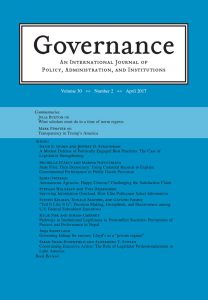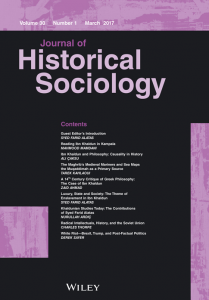Undisciplined Methods for Research and Engagement
 A two-day intensive research methods workshop on ‘Undisciplined Methods for research and engagement’ took place on 31st May and 1st June at the University of Brighton, UK. The aim was to explore approaches to research that might challenge established or ‘disciplinary’ methods used in the social sciences and humanities, providing a space for deep reflection on ways of generating and representing knowledge through practical experiences. We did this through listening and sharing, drawing on walls, doing physical theatre exercises, nonsense training, visual analysis and a guided mediation with paper (for a full account of the workshop activities, please visit the Undisciplined Methods blog page).
A two-day intensive research methods workshop on ‘Undisciplined Methods for research and engagement’ took place on 31st May and 1st June at the University of Brighton, UK. The aim was to explore approaches to research that might challenge established or ‘disciplinary’ methods used in the social sciences and humanities, providing a space for deep reflection on ways of generating and representing knowledge through practical experiences. We did this through listening and sharing, drawing on walls, doing physical theatre exercises, nonsense training, visual analysis and a guided mediation with paper (for a full account of the workshop activities, please visit the Undisciplined Methods blog page).
What does it mean to be undisciplined? Workshop contributor, Helen Johnson, reflected: “to me, being undisciplined is about playing, experimenting, being creative and interdisciplinary, but it’s not about doing things badly”. Helen, Senior Lecturer in Psychology at the University of Brighton articulated this through three ‘C’s: ‘Communication’, ‘Creativity’ and ‘Craft’. Communication was being able and willing to share our own knowledge in different contexts, as well as listen attentively to other ways of knowing. Creativity was defined as useful (in its widest possible sense) and novel, and Craft was about understanding the skill, knowledge, time and thought that any practice requires.
Being undisciplined might mean continuously learning about practices that are outside of our ‘area’, and being brave. I muse whether such a task might also involve unlearning some of our own practices and ways of knowing. Not to dismiss or diminish them, but because the rules we abide by might prevent us from new kinds of experimentation and exchange… and this process of unlearning will not always be comfortable.
Professor of GeoHumanities at Royal Holloway, Harriet Hawkins, contextualised the history and ‘making’ of the discipline of geography from Alexander Von Humbolt (1769-1859) to recent creative turns, or returns which have reasserted the role of different ways of knowing and representing knowledge within this academic discipline. Although the use of ‘different’ forms of research and representation in geography is not new, these practices often happened alongside ‘traditional’ research practice and publications. Harriet has recently challenged this by rewriting requirements for doctoral research, but there are many different models for doing ‘creative’ geography. Doing practice-based doctoral research needs co-supervisions in geography and relevant practice-based disciplines (e.g. fine art, illustration, photography, performance, etc.) to ensure appropriate accompaniment and assessment of quality. This is happening alongside academic journals in geography offering new platforms for publishing ‘creative’ kinds of outputs. Nevertheless, key questions remain: What is a PhD in Geography? How do we assess it? How do we supervise it?
Thinking about Skills and Expertise, Harriet starts, “I am bad at drawing […] but what does it mean to discover my lack of skill in drawing?” Experimenting with drawing in her research practice led her to pay attention to the process of drawing, and ask questions about the role of skill and expertise. Indeed, when researchers try new things, there can sometimes be a danger of ‘research tourism’, obviating the fact that all practices have a history, and making them – to quote Lauren Berlant – ‘all too available for the doing’.
Beyond skills, being undisciplined requires time and emotional labour from researchers. It requires working with generosity, cultivating respect and patience. It requires exuberantly celebrating our undisciplining, as well as taking strategic actions.
Finally, Harriet led us to reflect on how ‘undisciplining’ our methods often involves participatory approaches to research. These can help us go beyond the fetishisation of practice as either professional or amateur, focusing rather on what happens in the process of doing things together. Trying things that are outside of our area of ‘expertise’ requires us to sit with our own discomforts…and learn with them. There is much we can learn as researchers, collaborators, and practitioners. But, as Harriet asks, “what might disciplines learn from undisciplining?”
Suggestions for ongoing provocations
- What are disciplines, and who does policing disciplines serve?
- What discipline or rules might I/we need in order to be undisciplined?
- What does it mean to break the rules ‘well’? Or ‘get it right’? This involves notions of ‘good’ or ‘less good’ academic practice, and more or less ‘good’ non-academic practice (whether in the arts, grassroots action, participatory civil society work). Who sets these norms, and is a normative approach necessary in all cases?
- Quality judgements will also depend on the purpose of such practices, whether intended for the public or only part of a process.
- If we mean challenging the boundedness of disciplines and the kinds of knowledge given authority within the worlds of research, this also brings challenges.
- When do we need to engage in strategic undisciplining?
Special thanks to fellow doctoral candidates and event co-organisers Lorenza Ippolito, Kate Monson, Xavi Balaguer, Shai Kassirer, Ellan Parry and Adam Phillips, and to all workshop contributors and participants.
Thanks also to the Arts and Humanities Research Council TECHNE Doctoral Training Partnership and the Centre for Research in Spatial Environmental and Cultural Politics at the University of Brighton for funding and providing support for the event.
Elona Hoover is an interdisciplinary researcher with a background in human sciences and over seven years of experience working in research and collaborative projects in the practice of values and ethical dimensions in collective organising. She is currently researching relationality with the more-than-human in urban commoning projects.






